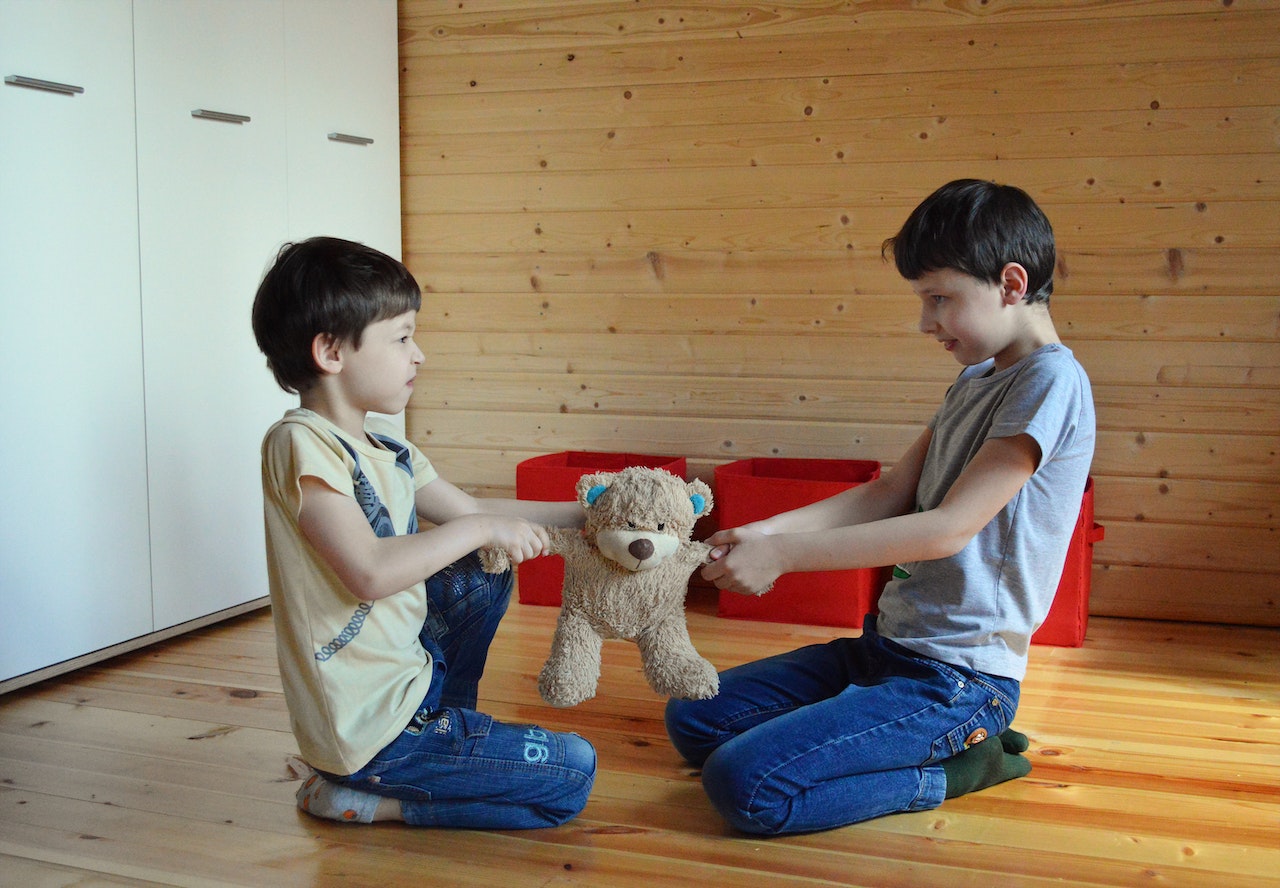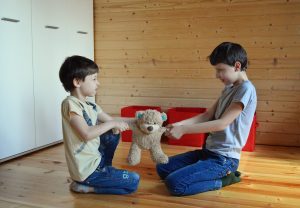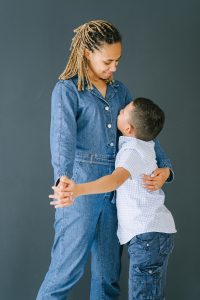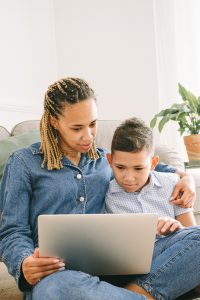Can Social Skill Deficits Cause Anxiety in Kids?

 Are you worried that your child might be feeling anxious because they have trouble interacting with others? You’re not alone.
Are you worried that your child might be feeling anxious because they have trouble interacting with others? You’re not alone.
Children with difficulties in social skills may have trouble understanding social situations or responding in a socially appropriate way. This can lead to self-doubt, insecurities, and anxiety in kids.
In this article, we’ll explore what social deficits are, how they can affect kids’ anxiousness, and how you can help.
What are Social Skill Deficits?
Social skills refer to how children interact and understand others and their feelings. It includes learning how to express emotions appropriately, considering what someone else might be feeling, and acting with empathy.
Here are some of the main social skills kids need to learn as they develop:
- Following directions
- Being kind and polite
- Asking questions nicely
- Making eye contact
- Showing respect
- Asking appropriate questions
- Listening
- Sharing
- Showing empathy
- Taking turns
Social skill deficits appear when a child has trouble understanding and reacting to verbal and non-verbal cues in social situations. Some examples of this could be not understanding social rules and norms or not knowing how to regulate emotions in certain situations.
Other examples of social skills deficits include:
- Trouble getting hints from others
- Not knowing how to start a conversation
- Having a hard time maintaining friendships
- Not being able to step back and control emotions
- Not being able to keep up with conversations
- Not making eye contact
- Having poor problem-solving skills
- Being very shy
- Not getting jokes
How do Social Skill Deficits Cause Anxiety in Kids?
Social skill deficits can create anxiousness in two key ways:
Misinterpretation
Kids who have challenges with making friends might not understand how to act when around others. This can make it hard for them to fit in and make connections. As a result, they might seem distant or confused about how to interact with others, and their peers may misinterpret them.
This can cause your child to feel left out or worried that no one will accept them. If this is the case, it‘s important to help your child better understand social cues and norms so that they can make meaningful connections.
Self-regulation
Kids can have problems regulating their emotions, energy, and behavior. This can cause them to be puzzled by their peers and make it difficult to interact socially. They may be scared to be in group settings or get overwhelmed easily.
Poor self–regulation can also make it hard for them to know how to respond in situations. This can cause them anxiety and make them worry that they won‘t be understood or accepted.
How to Help Your Child with Social Skill Deficits
The good news is that it’s possible to be taught how to interact with others, and we can take steps to improve when we don‘t do it very well.
Therapy can help with social skill deficits in kids with anxiety
A mental health professional can help figure out what level of help is needed. Therapy is one of the best ways for kids to develop stronger social skills as well as understand their feelings, manage their emotions better, and boost their self-confidence. Sometimes, medicine might be needed too.
Look for a therapist who is good with kids, experienced in treating anxiety, and with helping kids improve their social skills. They should have a good understanding of how anxiety can affect children’s ability to socialize and have techniques to help your child manage their anxiety.
Additionally, a good therapist should be open to discussing your concerns and willing to provide resources and support for the whole family.
Parents can help with social skill deficits
 Parents have a big responsibility to help their child in social situations. Listen carefully to what your kid is saying and don‘t ignore any worries.
Parents have a big responsibility to help their child in social situations. Listen carefully to what your kid is saying and don‘t ignore any worries.
Talk openly and provide support. Keep an eye on your kid for when they need help. This will help them have strong relationships.
Here are some additional ways to support your child:
Understand the Social Skill Deficiency
Try to understand your child‘s social skill deficit in order to know how to best help them. Talk with doctors, therapists, teachers, or counselors to gain insights.
Furthermore, watch your child in social settings to determine what needs to be improved and search online or at the library for tips.
Model Positive Social Behavior
One way to help your child learn important social skills is to model good behavior. Show your child how to be kind and considerate to others. Speak kindly and be polite in conversations. Demonstrate how to introduce yourself and others to a new person.
When there is a disagreement, don‘t be afraid to show your child how to resolve it without becoming angry or blaming someone else. By showing positive social behavior, you can help your child understand how to interact with the world around them.
Encourage Your Child to Interact with Others
Encourage your child to spend time with other kids and grown–ups. This can help them get used to socializing. They can make friends and learn how to get along with others.
This can help them get used to socializing. They can make friends and learn how to get along with others.
Here are some practical ways to help:
- Arrange playdates for your child to talk to other kids
- Help them join clubs or teams so they can be around others their age
- Talk to the other kids and show your child how it’s done
- Do things like board games or arts and crafts that let all the kids work together
- Talk to other grown-ups politely and be friendly. Let your child see you interacting with others.
- Ask other kids to come to your place and give them fun activities to do
- If your child has trouble getting along, help them work it out instead of saving them
- Listen to them talk about their time with others and share your thoughtful advice.
Employ Positive Reinforcement
Using rewards to help teach good behavior can help your child understand what is right and wrong. Besides rewards, you can give compliments when your child does something nice or use positive sentences when they do something right.
You can set up expectations and consequences for their actions. Also, make sure you give them chances to make choices that could lead to success. Give them encouragement when they try their best and offer them something tangible when they have done something well. Using reinforcement in this way will help your child develop good habits over time.
It’s possible to address problems with social skills. To help, it’s important to find out what’s causing the issues and plan for a way to overcome the deficits. Your child can learn how to speak with others, develop relationships, and control their emotions.
It may take some work, but the results of having strong social skills are worth it. You, teachers, and professionals can help your child to succeed and feel more confident.
Begin Online Therapy for Kids and Teens with Anxiety in Illinois and now Florida.
 If your child or teen is struggling with anxiety, including panic attacks, there is hope! Anxiety is highly treatable and online anxiety treatment at Briefly Counseling can help.
If your child or teen is struggling with anxiety, including panic attacks, there is hope! Anxiety is highly treatable and online anxiety treatment at Briefly Counseling can help.
Using Solution-Focused Brief Therapy, I help kids and teens reduce their anxiety and build resilience so they can become a happier, more confident version of themselves.
And kids love being able to receive counseling from the comfort and privacy of their own home. Studies have consistently proven that online therapy delivers equal results to in-office counseling.
As an experienced and caring therapist, I love providing counseling for anxiety. To start your child’s counseling journey, call me at 224-236-2296 or email Helena@BrieflyCounseling.com to schedule a FREE 20-minute consultation.
Helena Madsen, MA, LCPC is the founder of Briefly Counseling. I specialize in providing online short-term anxiety treatment for kids and teens ages 7 – 18 as well as Christian counseling.
Whether you’re on the North Shore, in Naperville, Chicago, Champaign, Barrington, Libertyville, Glenview, or downstate Illinois, I can help.
And effective 2024, I am now licensed in Florida! For parents in Jacksonville, Pensacola, Destin, Crestview, Coral Gables, Weston, Parkland, Naples, Marco Island, and Pinecrest, I have immediate openings.
Schedule your appointment or consultation today. I look forward to working with your child to quickly and effectively help them in activating their strengths, resources, and resilience, in order to live with confidence and hope.

